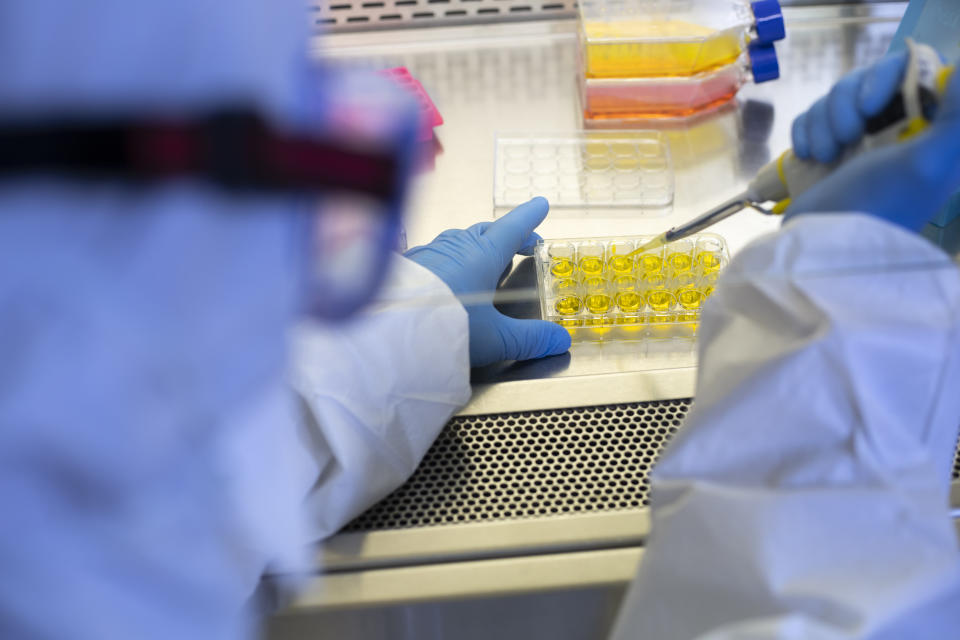Coronavirus ‘could trigger diabetes in previously healthy people’, experts warn

People with underlying health conditions such as diabetes are six times more likely to be hospitalised with COVID-19, and have a risk of death 12 times higher.
That’s according to leading experts who added that several cases have suggested that the coronavirus may trigger diabetes in previously healthy individuals.
Scientists have created a registry of new cases of diabetes in COVID-19 patients (the CoviDiab Registry Project), and described the link between diabetes and coronavirus as “bi-directional’ in a letter to The New England Journal of Medicine.
Julian Hamilton-Shield, professor in diabetes and metabolic endocrinology at the University of Bristol, wrote in an essay in The Conversation: “There has been a case report from China of a young man of previous good health presenting with new-onset, severe diabetes, termed keto-acidosis, after contracting COVID-19.”
The SARS coronavirus outbreak in 2004 also caused acute onset diabetes in some patients who suffered pneumonia after infection.
Read more: Coronavirus myths you should stop believing immediately
Francesco Rubino, of King's College London, wrote: “Diabetes is one of the most prevalent chronic diseases and we are now realising the consequences of the inevitable clash between two pandemics.
“Given the short period of human contact with this new coronavirus, the exact mechanism by which the virus influences glucose metabolism is still unclear."
Julian Hamilton-Shield wrote: "We have known for many years that viral infections may be linked to the first time a patient has diabetes symptoms.”
Hamilton-Shield added that there have been recorded cases of diabetes developing during infections with mumps and enterovirus, as well as more recent cases involving SARS.
Read more: Coronavirus shows how vulnerable societies are, says Greta Thunberg
"Before the COVID-19 pandemic, east Asia experienced the SARS outbreak (2002-04), which was also caused by a coronavirus,” he wrote. “There were documented cases of acute onset diabetes in people with SARS pneumonia, which was not seen in those with pneumonia of other causes.
"In most cases, the diabetes resolved after three years, but it persisted in 10 percent of patients.
Hamilton-Shield said that both SARS and the coronavirus behind the current pandemic have protein spikes which attach to ACE2 receptors in lung and kidney cells – as well as islet cells in the pancreas.
“It is proposed that once in islets, COVID-19 disrupts normal cell function leading to abnormalities in the pathways that maintain blood glucose through insulin secretion. It is also possible that cell invasion leads to acute inflammation that kills islet cells.”
Read more: Dying Mum’s plea for life-prolonging treatment to see her through coronavirus
A study by the US Centers for Disease Control and Prevention found that diabetes was among the most prevalent health conditions linked to severe cases of coronavirus.
By analysing data from over 1.3 million COVID-19 patients from January 22 to May 30, the CDC found that the most prevalent underlying health conditions in more severe cases were cardiovascular disease, diabetes and chronic lung disease.
About 45% of patients who had underlying health conditions were hospitalised, compared with 7.6% of those without such chronic health issues.
Death due to COVID-19 was reported in 19.5% of patients with health complications, compared with 1.6% of people who did not suffer from chronic illnesses.
“These findings are consistent with previous reports that found that severe outcomes increased with age and underlying condition, and males were hospitalised at a higher rate than were females,” the CDC wrote in its report published last week.
Coronavirus: what happened today
Click here to sign up to the latest news, advice and information with our daily Catch-up newsletter
Read more about COVID-19
How to get a coronavirus test if you have symptoms
How easing of lockdown rules affects you
In pictures: How UK school classrooms could look in new normal
How public transport could look after lockdown
How our public spaces will change in the future
Help and advice
Read the full list of official FAQs here
10 tips from the NHS to help deal with anxiety
What to do if you think you have symptoms
How to get help if you've been furloughed

 Yahoo News
Yahoo News 
